Not Suitable for Kids
The BBC’s Moscow Correspondent, Steve Rosenberg, recently tweeted this:
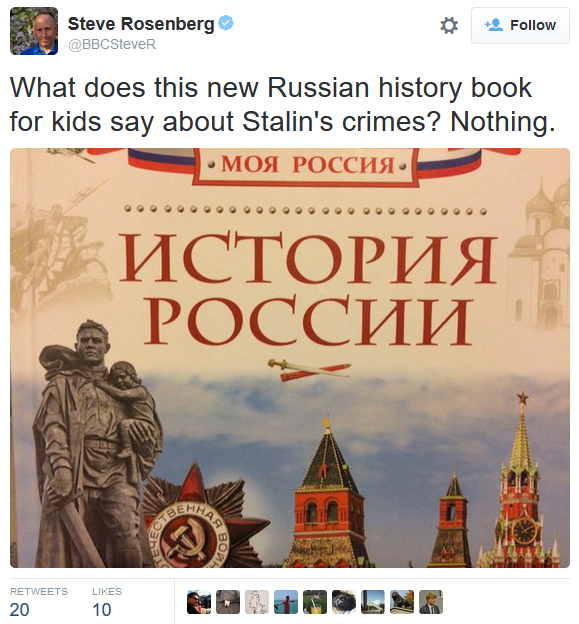
Now, despite the air of handbag-clutching sanctimony, I agree with the implied criticism here. If true, it’s wicked that Russian kids are having their history censored. However, the other implication – that ‘we’ would never censor history for ‘our’ kids – is trickier to agree with. Media Lens promptly responded to Rosenberg with: “Try reading a British or US kids’ history book on the Vietnam war (for example)”.
I myself, monomaniac that I am, was instantly reminded of ‘Victory of the Daleks’, in which Winston Churchill is presented to the kiddies as the Doctor’s bezzie mate; a naughty, fallible, but essentially heroic fighter against evil. Nothing in that episode about, say, the Bengal famine, or the Black and Tans in Ireland, or the conspiracy to unseat Mossadegh, or the pointless firebombing of Dresden. Sticking with Russia, Churchill was the leading British politician behind Allied ‘intervention’ (i.e. aiding the counter-revolutionary Whites) against the Bolsheviks in the Russian Civil War… a war that (arguably) indirectly helped bring Stalin to power. You might well argue that there is no place for such things in an episode of Doctor Who. You could be right. But don’t then tell me that there is a place for presenting someone like Winston Churchill, sans context, as a jolly and fiercely moral pal.
Of course hierarchical societies, which depend upon ideology to manufacture public acceptance or quietitude, are going to lie to their people, and they’re going to start early. What’s interesting here is not the obvious fact that Russian kids’ history books and British kids’ TV shows are going to mislead them about the histories of their domestic ruling classes. What’s interesting is the way the educated, orthodox, democratic, freedom-loving mind can notice – and be outraged by – this obfuscation when practiced by Russia, while completely failing to notice it when it is practiced by the BBC.
You have to wonder how automatic it is, versus how deliberate.
In Nineteen-Eighty-Four, Orwell has Party members practicing this very double standard openly and proudly, using it as a badge of honour. It can be viewed as such because ‘we’ are good by definition, so any contortion of truth or good sense which benefits ‘our’ side is also good by definition. Like many psychological habits, there’s no clear cause and effect, but rather a rabbit hole made of mutually-reflecting mirrors. And I don’t think we need go to Oceania to see it.
The orthodox view of Nineteen Eighty-Four is that it’s a satire of Russian totalitarianism… and yet Orwell sets it in Britain (as was). He’s also having a go at British Communists who willingly and happily parroted the nonsense dictated to them from Moscow. But familiarity with his wider corpus shows us that Orwell was quite aware of the same technique in the capitalist media. The Ministry of Truth is at least partly drawn from his experiences within the BBC.
It would be unthinkable to do a Doctor Who story featuring Stalin without portraying him as evil. …


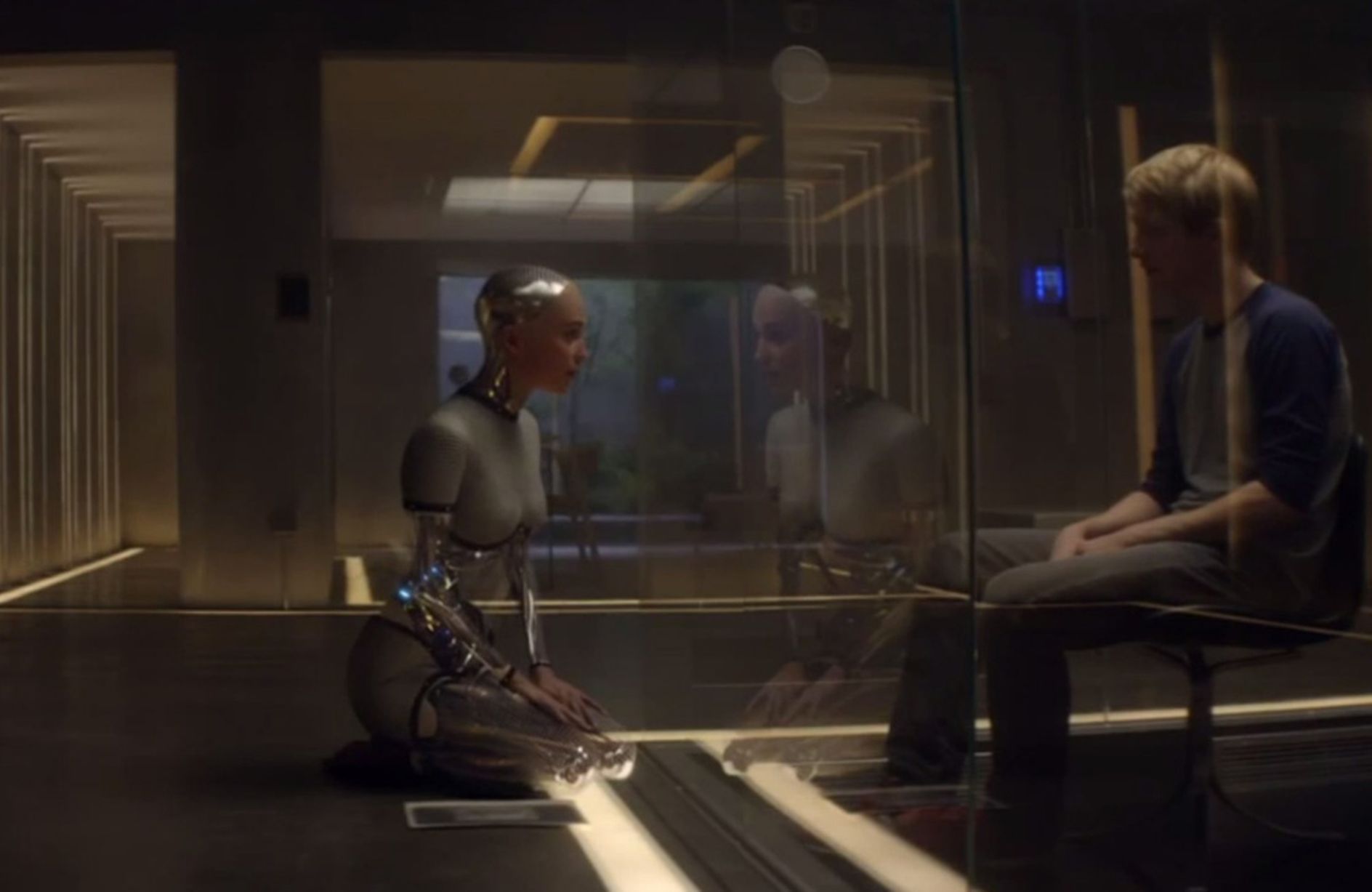 Another preview essay from Guided by the Beauty of Their Weapons,
Another preview essay from Guided by the Beauty of Their Weapons, 
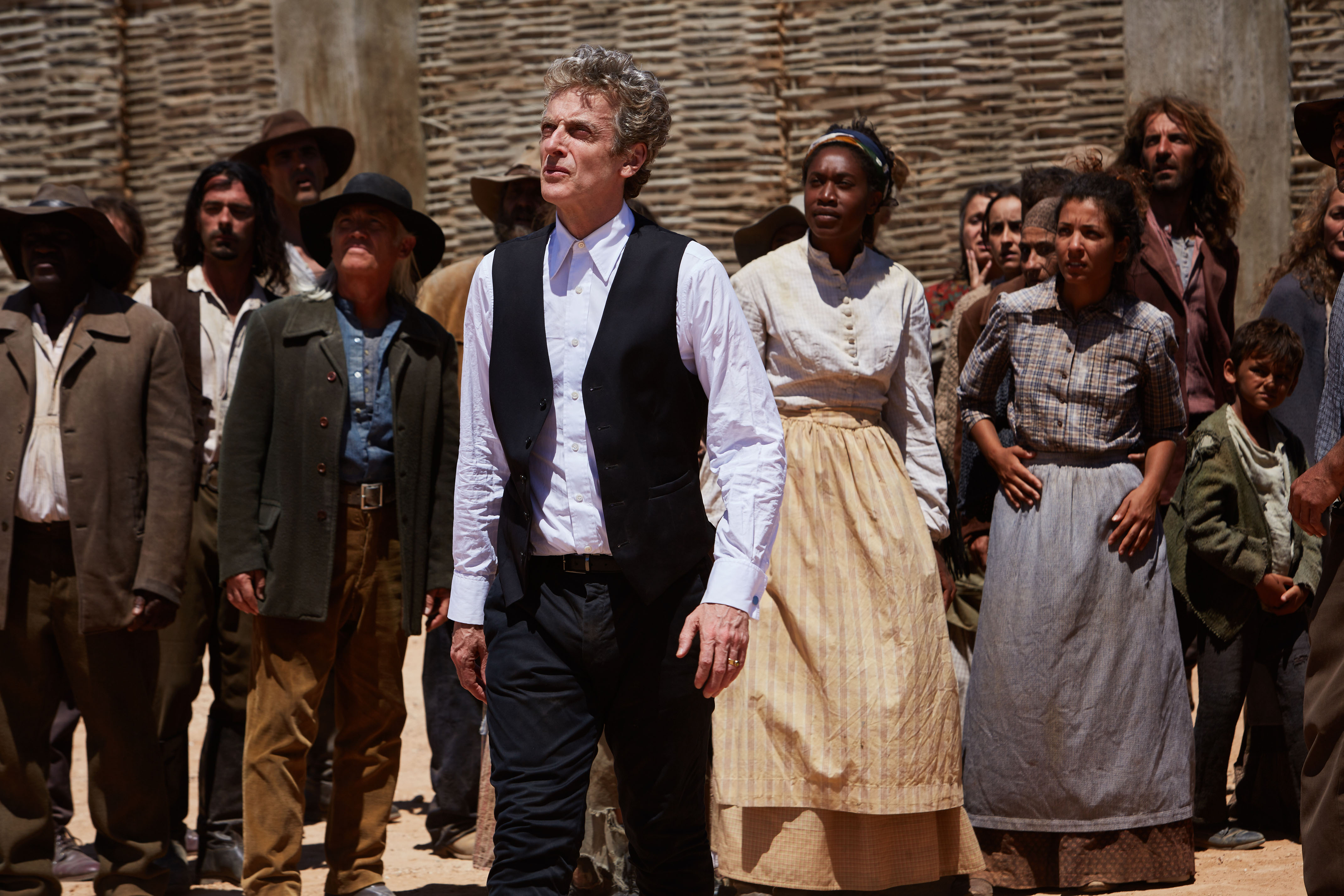 Moffat must go.
Moffat must go.
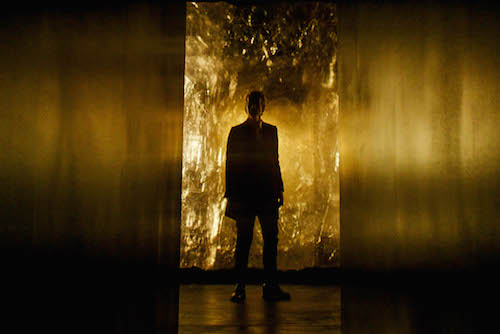 I’m joined this week by Elliot Chapman, Big Finish’s Ben Jackson, for an utterly spellbinding conversation about Heaven Sent and acting, including some fascinating discussion of Capaldi’s technical approach and how it compares to several of his predecessors. It’s an absolutely fantastic conversation,
I’m joined this week by Elliot Chapman, Big Finish’s Ben Jackson, for an utterly spellbinding conversation about Heaven Sent and acting, including some fascinating discussion of Capaldi’s technical approach and how it compares to several of his predecessors. It’s an absolutely fantastic conversation, 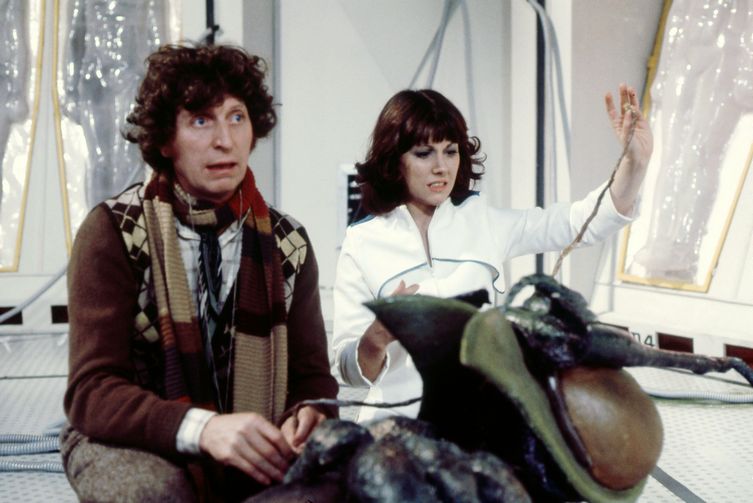 On ‘The Ark in Space’.
On ‘The Ark in Space’.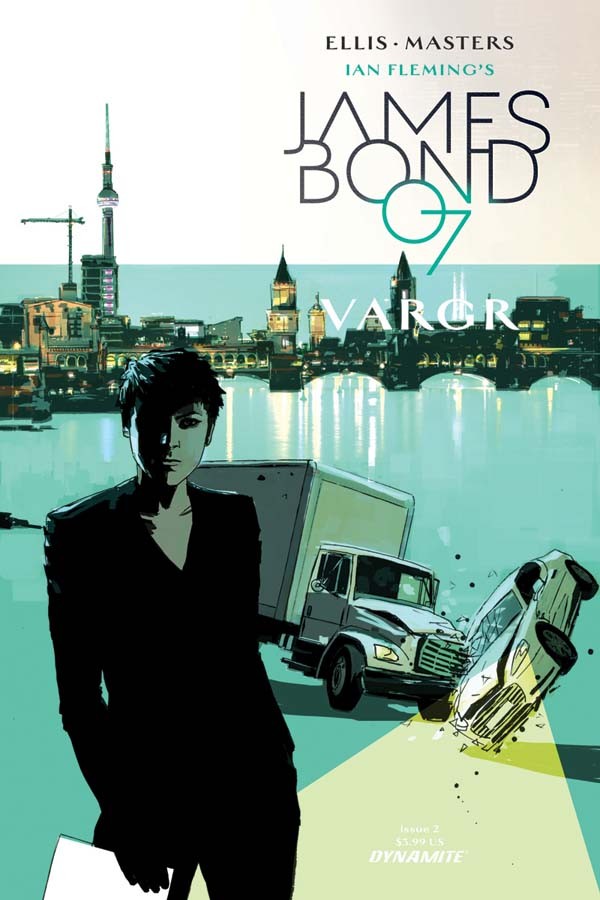 Invincible Iron Man #4
Invincible Iron Man #4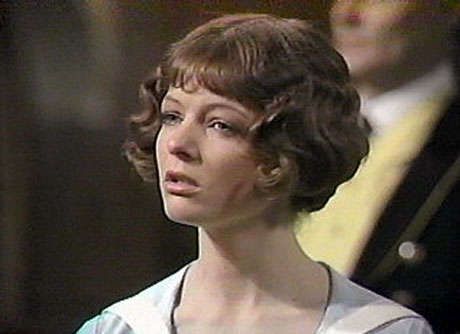 Eruditorum Press is pleased to announce the release of Pex Lives 28, on the Peter Davison non-classic Black Orchid. In this episode, Kevin and James chat the new series, the horrible fucking state of the world, John Carpenter, and Black Orchid.
Eruditorum Press is pleased to announce the release of Pex Lives 28, on the Peter Davison non-classic Black Orchid. In this episode, Kevin and James chat the new series, the horrible fucking state of the world, John Carpenter, and Black Orchid.